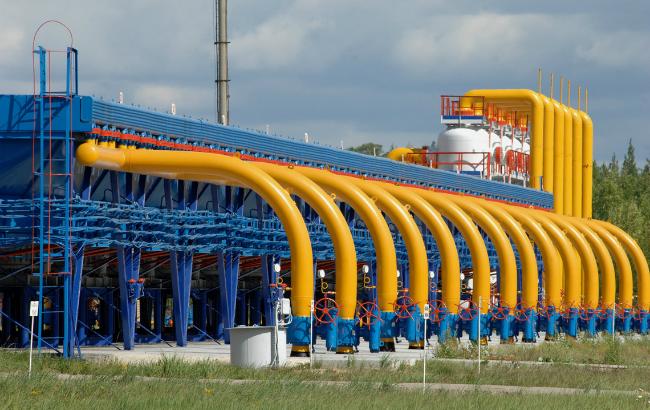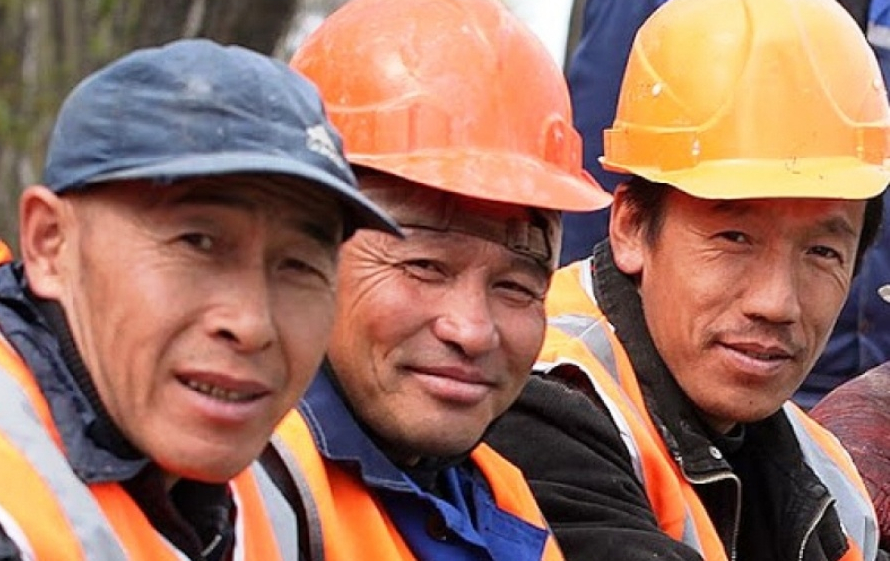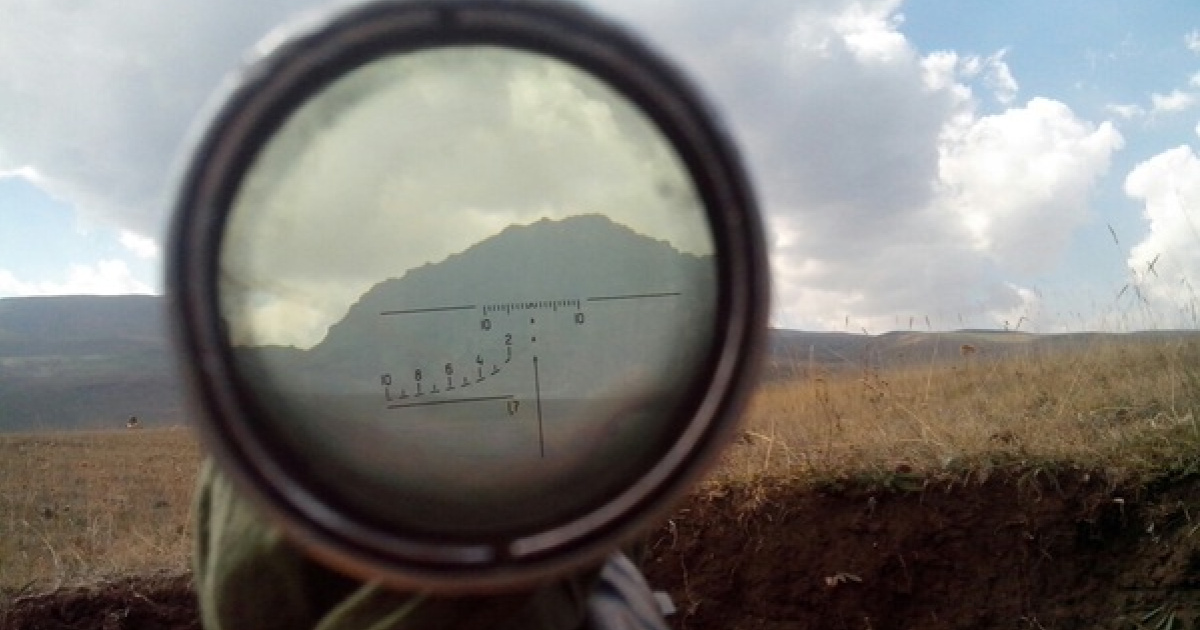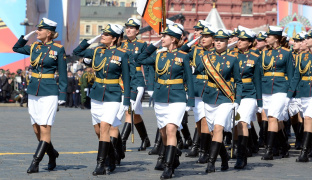The gas issue will determine the future of Ukrainian-Russian relations soon. Termination date of 10-year "contract of the century" signed in January 2009 between Naftogaz of Ukraine and Gazprom is approaching day by day. The desire to prolong the favourable terms will force Russian President Vladimir Putin to seek political leverage on official Kiev. They may use either a carrot or a stick. But they are likely to use both.

What Putin hasn’t considered
As noted, even before Vladimir Putin came to the Kremlin, relations in the economy in general and in the gas sector, in particular, were not equal and partner.
Putin just completed the divorce and put a nightstand between the beds - taking a course to establish their own production in Russia, similar to Ukrainian one.
It is, first of all, car building, aircraft building, shipbuilding, manufacture of steel pipes. The economy of the Russian Federation received the coveted autonomy from unpredictable political scenarios in Kiev.
But it destroyed the basis for the economic reintegration of the CIS that the Russian leader himself actively sought from Ukraine, especially during V. Yanukovych’s rule.
It is worth noting that such a strategy was applied by the Kremlin in respect to other former Soviet republics.
It is not surprising that the process of integration within the Eurasian Economic Community (EurAsEC), in fact, turned out to be frozen - in spite of political loyalty and personal sympathy to the President of the Russian Federation by the President Nursultan Nazarbayev and Alexander Lukashenko.
After all, if you think of what so economically important Belarus has got for the Russian Federation– only famous potatoes? Everything else has analogues.
For example, Belarus has got MAZ - Kamaz in Russia, Belkaliy is Uralkaliy in Russia. These enterprises are bitter rivals on the market of trucks and potash fertilizers.
Similarly, the Russian Federation is not interested in Belarusian furniture factories and Mozyrsk Oil Refinery: Russia has got a plenty of oil refineries. And woodworking is also quite a well-developed industry.
The only truly important issue is transit of Russian gas to the EU. Its export was and still is the most important component of income of the Russian economy.
Therefore, the fact that the Russian state concern merged the Belarusian gas transportation system operator Beltransgaz was the sole purpose of the Kremlin that was eventually achieved in 2011
And it has been the cornerstone of relations between Moscow and Minsk. No much progress has been achieved in the framework of EurAsEC. The same can be said about Astana.
Earlier the Russian peaceful space programme was completely dependent on Kazakhstan. More precisely, the Baikonur cosmodrome was located on its territory.
Conversion of Yasnyi military cosmodrome for launching of commercial satellites (the first launch took place in 2006) and the construction of new Vostochny civil cosmodrome "from scratch" (first start - in April this year) – are the projects in their significance for Astana comparable with the construction of new gas pipelines bypassing Ukraine.
Kazakhstan lost exclusive partner status and lost significant income from the participation in the Russian space programme.
Although it would seem that the Kremlin couldn’t have a more loyal ally in the former CIS than Nursultan ...
And this is the best answer to those who interpret Putin's actions with regard to Ukraine through the prism of short-term political realities.
Let’s say. You shouldn’t have teased the geese, declare fighters of the OUN-UPA to be fighters for Ukraine's independence, etc.
Come on, you could give an official status to the Russian language - you see, Vladimir could be kinder and agree to continue to sell our gas at $ 50/1000 m3 ...
In fact, as mentioned, Putin decides exclusively due to business expediency, he is not distracted by the political nuances.
The construction of the cosmodrome is a major infrastructure project across the country. It takes orders from Russian companies, jobs, taxes, investment in the development of the national economy.
Another thing is that because of this approach, the economic gap between the former Soviet republics is becoming bigger and bigger, there are less and less bridges.
This puts an end to plans of the Kremlin regarding USSR resuscitation in the new association under the aegis of Russia. Putin’s economic strategy and policy are in stark contrast to each other.
But worst of all is that former Soviet republics become competitors in the global market.
Big bluff
Therefore, the construction of new gas pipelines to the EU under the Baltic and the Black Sea bypassing Ukraine looks quite logical.
But we must note that the Vostochny cosmodrome cost $ 1.31 billion. Construction costs of the South Stream grew from € 15.5 billion to € 23.5 billion in 2014.
As previously reported by OstroV, Gazprom is not financially capable to conduct such a project when in the east of the country Sila SIbiri gas pipeline is laid to China and the world oil and gas prices are still 2 times lower than before pre-crisis times.
The same applies to the North Stream-2. Although it is 2.5 times cheaper, only $ 11 billion. However, it is almost 10 times more expensive than the Vostochny cosmodrome.
Accordingly, the recent statements by Putin and Turkish President Recep Erdogan as of August 9th on the readiness to intensify the construction of Turkish Stream gas pipeline should be divided by at least 2.
Well, Ankara never hid interest in the I phase of the project - laying the pipe with capacity of 16 billion m3 per year, destined exclusively to meet the needs of the Turkish economy.
But the other three lines of 47 billion m3 in the direction of the Balkans had and still have insurmountable disputes.
In his turn, Erdogan, as a future partner and transiter, wants Gazprom to provide new "fat" preferences for gas price for Turkey.
But as recently as at the end of August, Russian media reported on the new gas agreements between Moscow and Minsk.
According to them, the gas for Belarus in 2017 will fall in price by a third to $ 92/1000 m3. Besides, Gazprom has agreed to issue invoices for gas in rubles.
These are pretty serious concessions causing reduction of profits from foreign sales of Russian state concern. Giving these concessions also to Turkish companies is too expensive for its budget.
Moreover, Turkey is a bigger consumer. Following the results of I quarter this year, shipments amounted to 6.42 billion m3 and in Belarus - 5.64 billion m3.
There is, however, South Stream. Bulgarian Prime Minister Boyko Borisov discussed its revival in a telephone conversation with Putin on August 5th.
But Bulgaria has its own interests and it also wants price preferences. Gazprom considers that to be too much.
In addition, Bulgaria is not as an independent player, as Turkey and strongly depends on the opinion of the official in Brussels, i.e. European Commission.
Thy don’t have enthusiasm for the new gas pipelines from Russia, cementing the EU's dependence on Russian resources. Therefore, that’s why it’s not so easy with North Stream-2.
First Polish UOKiK antitrust regulator refused European companies - participants of the consortium Nord Stream 2 AG, to harmonize their project.
Then, in mid-August Wintershall - one of the three largest energy companies in Germany, a subsidiary of BASF's structure, announced its withdrawal from the project.
It is unlikely that Gazprom has got an answer how to deal with these problems.
So, it doesn’t matter from which side you approach the question of transporting Russian gas to the EU, either from the south or from the north - all somehow depends on the Ukrainian gas transportation system.
And the fact that it has been and will remain the best route.
This means that all the statements and declarations of intentions to bypass "stream" are nothing more than an attempt to moral pressure on the official Kiev, the usual method for any business negotiations.
Including the recent visit of the head of Gazprom Alexey Miller to Turkey on August 30th. It was announced that the main goal would be to discuss the details of Turkish Stream.
However, as might be expected, there was no breakthrough between the parties - all remained the same.
Alexey Miller only could tell reporters on August 31st that they discussed energy cooperation and said that it was about Turkish Stream.
And it proves once again that Gazprom cannot avoid the Ukrainian variant at the end.
Gas solitaire
It is obvious that Naftogaz is also well aware of the situation. So, actually there are only two scenarios for Gazprom to deal with the Ukrainian route.
Either you offer us a "friendly" price for the resources and transport it "friendly" through our territory to European consumers or we buy it for the "market" price - but then you pay for transit also on the "market" conditions.
This is logical and Gazprom has no illusions about this. No wonder, as noted, that the price for Belarus is already 1.5 times lower than for Ukraine.
Similarly, Russian gas is cheaper for Germany than for Ukraine, Poland and the Baltic states. And it is not because Vladimir Putin likes Chancellor Angela Merkel.
It is so becasue Wintershall is a partner of Gazprom in the framework of North Stream-1 project and extraction of gas in the Russian Federation in the Urengoy field.
That is why there is no agreement "on good terms" between Gazprom and Naftogaz.
Mainly because the business proposals of Russian gas boil down to the fact that "lets at first eat yours, and then - each eats own."
The contract between the companies in 2009 is a clear confirmation. Even if you do not go into the nuances pledged to pricing formular.
If agreement on gas supplies has a condition "take or pay", i.e. guaranteed purchases from Naftogaz and the agreement on the transit has no similar obligations "pump or pay" for Gazprom – it is not point of talking about a fair and equitable partnership here.
But Ukraine cannot count on the restoration of justice in the court.
It is clear now because it’s September 2016 and claims of Naftogaz to Gazprom, submitted in May 2014 has not yet even begun to be considered in the Stockholm arbitration.
At first, leaders of Naftogaz and the government of Ukraine shared their expectations that the decision would be made in the first half of 2015, then the second, then in 2016 – again in a half a year.
Now the head of Naftogaz Andrey Kobolev said on June 6th that they were waiting for a decision in 2017 ... Meanwhile, it is obvious that the Swedish Themis had enough time for 2.5 years.
In view of the fact that earlier disputes and claims of European power companies with Gazprom were considered within the period from 6 months up to 1 year.
In this case, however, for political reasons, the EU decided to take a break and wait for the completion of the current Ukrainian-Russian contracts.
Not to aggravate their difficult relationships with Gazprom because of Ukraine. Hence, such a long pause in the Swedish trials.
In terms of the results of new gas talks, one can certainly say that the Kremlin will not ignore Kiev only when it learns learn to defend its economic interests.
As corny as it may sound. Until now it has been bad at it.
And it's hard to say what’s wrong, whether it is the corruption of Ukrainian negotiators for a modest fee to "leak" the national interest, or their outright stupidity.
In any case, both options are equally bad for the country. And it applies not only to the gas sphere, but also to all the external economic policy.
So, during V. Yushchenko’s rule Ukraine joined the World Trade Organization on unfavourable conditions. It’s worth saying that the average rate of customs duties fell from 9% to 5.66%.
For comparison: in Russia from 10% to 7.8%. It means that Russians defended much better conditions of membership in the WTO. Unfavourable conditions are also in the agreement on free trade between Ukraine and the EU.
In accordance with it, the access of Ukrainian goods to the European markets is blocked by non-tariff methods: certification, quotas, etc.
Therefore, the main Ukrainian export to the EU is not finished products with high added value but raw materials ensuring the work of European enterprises.
Iron ore, steel slabs, honey, nuts, sunflower seeds, rapeseed, raw hides of bovine animals, scrap metal and round wood - that's all that Europeans need from us.
And they made the government of Ukraine to nullify export duties on these items. We can sell other items in the EU only within the quota.
For example, wheat grain - 950 thousand tons when its yield in the current year amounted to 26.5 million tons. Similar conditions are included into the free trade agreement with Canada signed by the present Prime Minister Vladimir Groysman.
Most items of Canadian goods we import are at the current rate of 5-10% while Canadians retained for Ukraine protective duties of 100-200% on the agricultural products.
Perhaps, the only currently successful case for Ukraine was made by former Minister of Finance Natalia Yaresko, who made a deal in September 2015 to write off part of the foreign debt.
So, it won’t be easy to deal with Gazprom on equal terms. But it is possible.
To this end, the government of Ukraine represented by the National Energy Regulatory Commission has increased the fee for transit of gas due to the transition to the new tariff formula in accordance with the EU directives.
As a result, since January 1st this year the price has increased from an average of $ 2.7 to $ 12.47/1000 m3 per 100 km.
Well, Gazprom refused to pay the new rates, appealing to the fact that transit services are regulated by the contract with Naftogaz but not by government decisions.
But in two years this argument won’t be valid in any case - with the completion of the current contract. And they will have to pay the "market" price.
V. Putin can avoid this scenario only if revenge of pro-Russian political forces takes place in Kiev. And such a scenario is possible.
According to the poll conducted in August by Rating group, if presidential elections in Ukraine took place in the near future, the leader of Batkivshchyna Yulia Timoshenko would be supported by 17.7% of respondents.
The one who signed the "contract of the century" in January 2009 and then giggled with Putin in front of the television cameras.
Another 11.5% would vote for the leader of the Opposition Bloc Yuriy Boyko - the former head of Naftogaz and ex-Minister of Energy who sat down at the table in the ranks of Gazprom delegation during gaz talks in Moscow.
It is clear that it was done unintentionally, "on autopilot". But it is also clear that this error, according to Freud, was made considering previous business relationship within D.Firtash- Yu.Boyko - S.Levochkin group with Gazprom within the framework of RosUkrEnergo.
In addition, if parliamentary elections were held in the near future, among those who intend to vote and made his/her choice, 18.3% would support Batkivshchyna party and 12.6% Opposition Bloc.
It means that both former partners of Vladimir Putin are on the top ranking of electoral sympathies. So, things are moving in the direction favourable for him...
Vitaliy Krymov, OstroV




